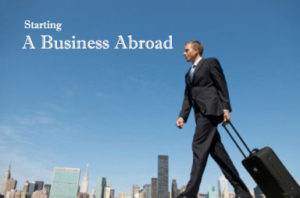
How hard is it to start a business in a foreign country? Well, this is one question which intrigues many small and medium business investors.
To be honest, starting a business in an overseas territory is several times harder than starting one in the home country. It could take months even years just to grasp basic knowledge and insight into the business operations.
Ok, we aren’t here to discourage investors to invest abroad, rather we just want investors to know what it takes to open business operations in a foreign country. If you are one of the potential investor looking to invest or expand your business abroad, continue to read-on as we share some important considerations before investing in an overseas business.
- Know the business practices
More than anything else, the first step towards an overseas business start-up is getting to know the laws and practices of the host country. Each country has its own unique business practices and law that might differ greatly from your own country. Besides, just because you can open a small web design business within a week in New Zealand, doesn’t mean you can do it in any random Asian or Middle Eastern country.
So, before you invest your hard earned capital, invest your time studying business practices and laws in the host country. Lookout for business friendliness index of the country; it will give you a fair idea of the level of difficulties you might encounter in the host country.
- Keep an eye on cultural differences
Just because you can earn big money by starting a fitness business in the United States doesn’t mean that you can do it in any country (for instance any Middle Eastern countries). Thereby, before you start or expand your business to a foreign country make sure you study the cultural response and affliction towards your business model in the host country. Lookout for cultural responses towards different business models and calculate the feasibility of the model beforehand.
Your search shouldn’t be limited to cultural differences, rather incorporate all business variables in your study. Lookout for language barriers, social interactions and any other variable that might effects business operations in the longer run.
- Don’t forget to take into account Political Climate
A complete and thorough understanding of the country’s political climate is absolutely essential before entering into a business venture inside that country. The variables here include the history of political unrest, fluctuation in business laws, the frequency of tax changes and asset seizure cases.
This is important to ensure safety and security of your capital funds and revenues generated within the political limits of the country. Many countries with political instability are prone to frequent changes in business and tax laws. Such changes could hard impact your business operations without any solemn guarantee of the government. Business friendliness rankings issued each year take into account the political stability of host country, which can be a good way to start researching about the country of your choice.
- There’s no alternative to local guidance
The best practice to expand into another country for business operations is to get a partnership with some local partners. Associations like the chamber of commerce or small business associations can help you in your quest to tap country’s local market.
Nonetheless, partnering with local businesses willing to invest in your business model is certainly the best and assured way to get first-hand access to local knowledge and practices.
Wrapping Up:
Starting business operations abroad is never an easy task, especially for medium and small investors with limited revenue. However, given the right background knowledge and research, you can certainly benefit by investing in a business-friendly and culturally diverse country abroad. Just make sure you did your homework comprehensively before you put your hard earned money at stake.


